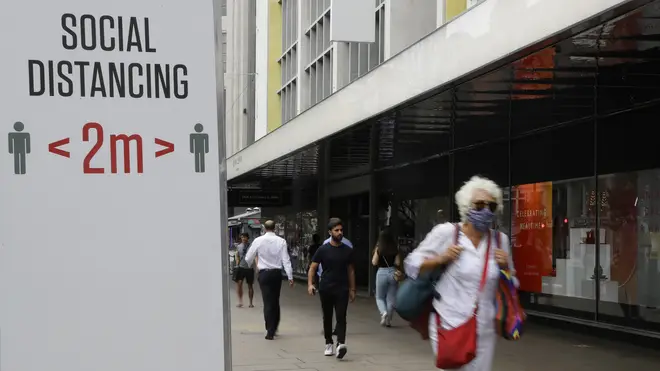
Simon Marks 3pm - 6pm
18 August 2020, 08:50

Leading doctors have expressed concern about the "pause" of the shielding programme to protect vulnerable people from Covid-19.
People deemed "clinically extremely vulnerable" were asked to shield at the height of the coronavirus pandemic.
But those instructions have now been paused, with people who spent weeks isolated from society returning to work, school and other activities.
A group of leading medical organisations have raised concerns about patients unable to work from home who have lost income protection.

Furlough needs to be extended for those who are shielding
A statement signed by the Royal College of Emergency Medicine, the Royal College of General Practitioners, the Royal College of Paediatrics and Child Health and charity National Voices, said the pause has led to challenges for doctors and patients.
They said that while many people who were shielding will be glad to return to work, doctors cannot ignore anxieties some patients are facing.
Those who are very concerned about their risk should still be supported, they said.
The organisations have called for arrangements so employees deemed by clinicians to be at very high risk do not have to return to work if they cannot work from home.
Listen & subscribe: Global Player | Apple Podcasts | Google Podcasts | Spotify
There should also be additional risk assessments for those happy to return to work, and more information for doctors so they can support vulnerable patients with the most up-to-date information, among other measures, the groups said.
Professor Donal O'Donoghue, Royal College of Physicians registrar, said: "Official shielding advice may have ended, but we cannot assume that patients who were previously shielding now no longer need protection from Covid-19.
"It is incredibly important that clinically vulnerable people continue to receive appropriate advice and care for the underlying conditions that have rendered them vulnerable in the first place, including having access to the flu vaccination.
"The Government must ensure that clinicians have the latest health advice so that they can effectively support their patients in making decisions about how to best protect themselves from the virus going forward."